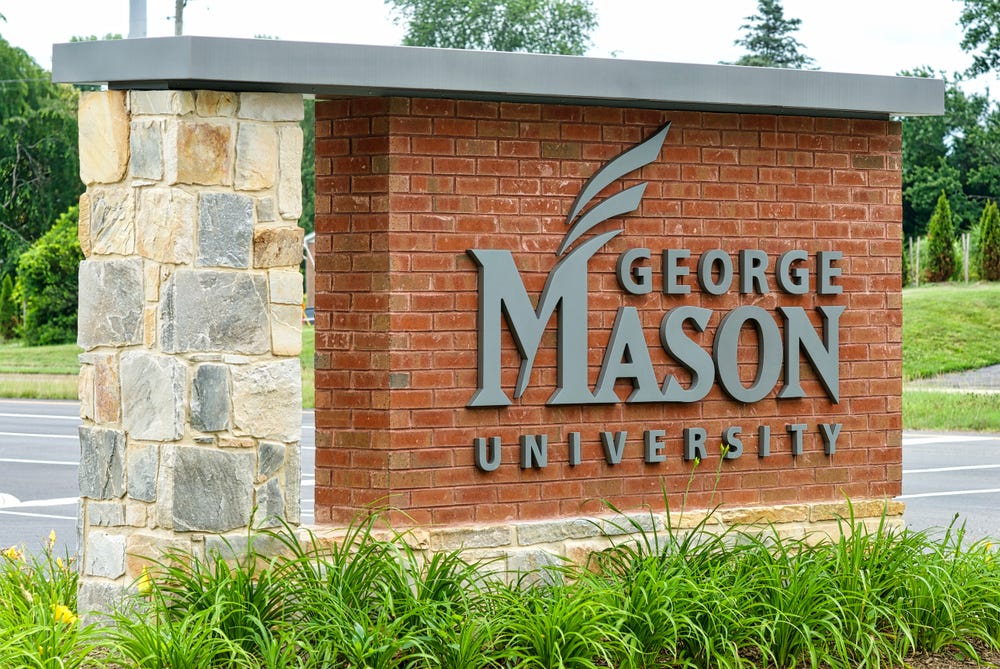E-Pluribus | September 7, 2021
Privacy and phones, the Jeopardy! saga drags on, and dissent at George Mason University.
A round up of the latest and best writing and musings on the rise of illiberalism in the public discourse:
Conor Friedersdorf: Your Phone Is Your Private Space
Few would argue with the nobility of a goal to reduce child pornography, but Conor Friedersdorf explains how a wide net, good intentions notwithstanding, can also snag the innocent as well as harm the overall principle of privacy. Although Apple reversed plans to implement proactive surveillance on its new iPhones, Friedersdorf spells out the potential impacts of such a system and the likelihood of similar schemes in the future.
An American who stores accumulated photographs in a spare bedroom or attic or self-storage space correctly presumes that those albums of visual keepsakes are off-limits to other people. Though an exhaustive inventory of the nation’s snapshots would include a minuscule percentage showing illegal acts, it would be outrageous if a photo-album manufacturer or a storage-facility employee insisted that, like it or not, their business would be investigating all of your photos, just to make sure that nothing in your collection was unlawful or immoral. We expect to be presumed innocent of nefarious acts, absent evidence to the contrary—and to be spared public or private agents rifling through our personal effects.
[…]
The civil libertarians who objected to the plans raised questions that remain important: Do we want a society in which the devices that we purchase—and that we must carry to navigate the modern world—are equipped to continuously and remotely monitor us for criminal acts? Or should Americans enjoy undiminished privacy in our personal effects, including photos, when we keep them in digital rather than physical form?
[…]
Another risk is that the technology would flag some of the innocents that it spies on. The computer scientists Jonathan Mayer and Anunay Kulshrestha, who published a peer-reviewed paper on how to build a child-porn detection system like the one Apple is implementing, published a Washington Post op-ed that explains why they came to believe the method is dangerous. “The content-matching process could have false positives,” they wrote, “and malicious users could game the system to subject innocent users to scrutiny. We were so disturbed that we took a step we hadn’t seen before in computer science literature: We warned against our own system design, urging further research on how to mitigate the serious downsides.”
Read it all.
Ari Blaff: I’ll Take “Cancel Culture” for $500
The ongoing saga of choosing a new host for Jeopardy! provides yet another opportunity to ponder the cancel culture question of accountability versus an impossibly high standard. The City Journal, Ari Blaff comes down firmly on the side of the latter, and argues the endless reexamination of every idle word spoken by each of us will not end well.
A handful of politically incorrect soundbites is all it took for Richards to get canceled, losing his co-hosting gig and now even his executive producer role on both Jeopardy! and Wheel of Fortune. Meantime, McNear has been lauded as a trailblazing journalist. “She wrote the history of ‘Jeopardy!’ then she changed it,” a New York Times headline gushed following Richards’s firing as co-host. Asked at what point Richards’s comments unsettled her, McNear said, “It became extremely clear to me very quickly that those things were kind of dotted throughout the episode: He uses sexist language; he uses ableist language; he uses ugly slurs and stereotypes.”
[…]
The greatest potential beneficiary in the wake of Richards’s, Jennings’s, and soon perhaps even Bialik’s cancellation is someone who believes the phenomenon is all to the good: LeVar Burton, of Roots and Star Trek fame. Burton, the lowest-ratedJeopardy! guest host during the post-Trebek period, was asked about cancel culture back in April, when he appeared on The View. He called the term “a misnomer.” Rather, “I think we have a ‘consequence culture,’ and that consequences are finally encompassing everybody in this society.” Cancellations, he said, are “good signs that are happening in the culture right now.”
But hunting down and scrutinizing someone’s every utterance isn’t progress; it’s Orwellian. Journalists who spend their time this way aren’t heroes. Our children will not thank us for the precedents we’re setting.
Read it all here.
ICYMI: Daniel B. Klein: Standing Up for Dissent
In July 2020, the incoming president of George Mason University announced formation of a “Task Force on Anti-Racism and Inclusive Excellence” (ARIE). In October, Daniel B. Klein, a GMU professor of economics, wrote an open letter (here reproduced at City Journal) warning that an overemphasis on the ARIE agenda would likely lead to a weakening of GMU’s reputation for ideological diversity with a decidedly non-left tilt.
GMU is a standout in non-left scholarship. I’m sure there are outstanding non-left scholars scattered here and there around the university, but the most prominent units in this regard are the law school and the economics department (which I belong to). If new policies and agendas make it difficult for those units to maintain that prominence, GMU will lose that academic distinction—and parents, students, and donors will choose accordingly.
When an organization or social structure becomes an ideological monoculture, ideas stop being tested and challenged. Only weak stereotypes stand in for differing points of view. Thinking then becomes fragile in the face of genuine stress. Dissidents refrain from speaking up. Groupthink sets in. That is one reason why the next step is reducing dissent: dissenting voices can expose any shallowness and wrongheadedness that has crept into the dominant political mindset. Cancel culture reflects such fragility in the face of stress.
In my view, groupthink exists not only within a particular university but in whole academic networks, which are like pyramids, with elite institutions at the apex. When the apex of the pyramid goes leftward—and they all have—left-leaners are swept into faculty positions throughout the pyramid.
The importance of GMU’s intellectual and ideological diversity, then, extends beyond campus. Having maverick units like GMU Law and GMU Econ is crucial not only to the ideological diversity of GMU but also to keeping non-Left scholarly dissent alive.
Read the whole thing.
Around Twitter
Wesley Yang on the state of discourse on social justice:
Similar thoughts from Peter Boghossian:
Via Heterodox Academy, a call for intellectual diversity:
Finally, “enabling fascism”? or defending liberalism?










